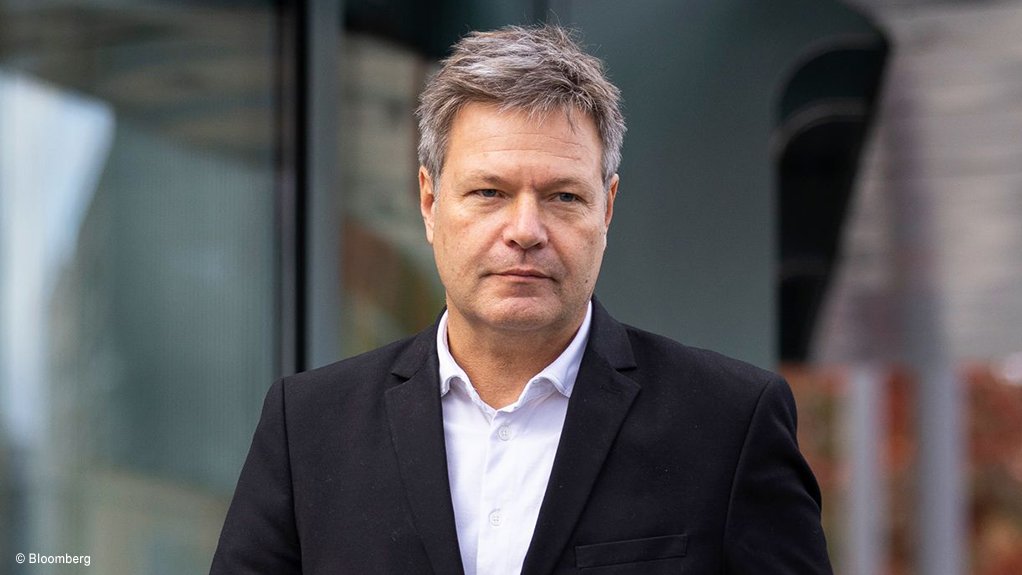German Vice Chancellor Robert Habeck, who is also Minister of Economic Affairs and Climate Action, argues that there can no longer be a trade-off between industrial development and climate action.
Speaking at the fourth German-African Business Summit in Sandton on Wednesday, Habeck said that the approach being pursued by the German government was premised on creating new markets and industrial opportunities that included climate action.
“My ministry is called the Ministry for Economic Affairs and Climate Action . . . and this is because we made a decision that climate action and industrial growth are not in opposition – they belong together.”
The approach, he added, had been adopted on the basis that “environmental sustainability and economic prosperity will be mutually dependent”.
Similar models were being pursued across Europe, while the Inflation Reduction Act in the US was redirecting America’s financial firepower the way of new green markets, including electric vehicles, renewable energy and hydrogen.
“So, the decision is made and now the competition has to begin to decide where the best opportunities are and where the best sites are for producing these,” Habeck added.
Germany was setting up climate and energy partnerships around the world, including in Africa, to support its decarbonisation plans, which included the large-scale importation of green hydrogen and derivatives.
Habeck warned, however, that those countries that sought to hold on to fossil fuels would place themselves at a competitive disadvantage in seeking to secure green investment, even if such countries had potent renewable resources.
“You can't do both … having two strategies means you don't have a strategy,” he argued.
Habeck insisted that Russia’s invasion of Ukraine had underlined the risks of being too dependent on both a single country for energy and on fossil fuels. It had also added impetus to Germany’s strategy to phase out oil, gas and coal, notwithstanding current emergency measures to secure those resources in the short term.
“So, when we're talking about green hydrogen, we're not talking as an addition to fossil fuels we're talking about one replacing the other.”
Addressing the conference on behalf of President Cyril Ramaphosa, Trade, Industry and Competition Minister Ebrahim Patel said that Africa was seeking to build mutually beneficial partnerships to bolster its manufacturing output and to do so in “greener and more sustainable ways”.
He noted that, while Africa was home to 17% of the world’s population, it made up only 3% of global gross domestic product and 2% of global manufacturing.
To attract investment Patel said African countries needed to promote political stability, the rule of law and intra-African trade and investment, while also developing skills and modern infrastructure, including reliable energy supply.
However, he also urged greater ambition by German investors in Africa, including to support higher levels of manufacturing and minerals value addition.
“While this is vital for Africa, it is an opportunity for Germany too.
“First, this will provide opportunities for German businesses to invest in an expanding African manufacturing sector and to strengthen your own local manufacturing capabilities, and many German companies are already doing that.
“And second, it will help in diversifying, and derisking Germany's own global supply chains and sourcing markets.
“This is particularly important given the experience of supply-chain disruptions and vulnerabilities during the pandemic and as a result of geopolitical tensions,” Patel said, adding that there were also climate benefits in ensuring that materials were transformed closer to source.
EMAIL THIS ARTICLE SAVE THIS ARTICLE ARTICLE ENQUIRY
To subscribe email subscriptions@creamermedia.co.za or click here
To advertise email advertising@creamermedia.co.za or click here











